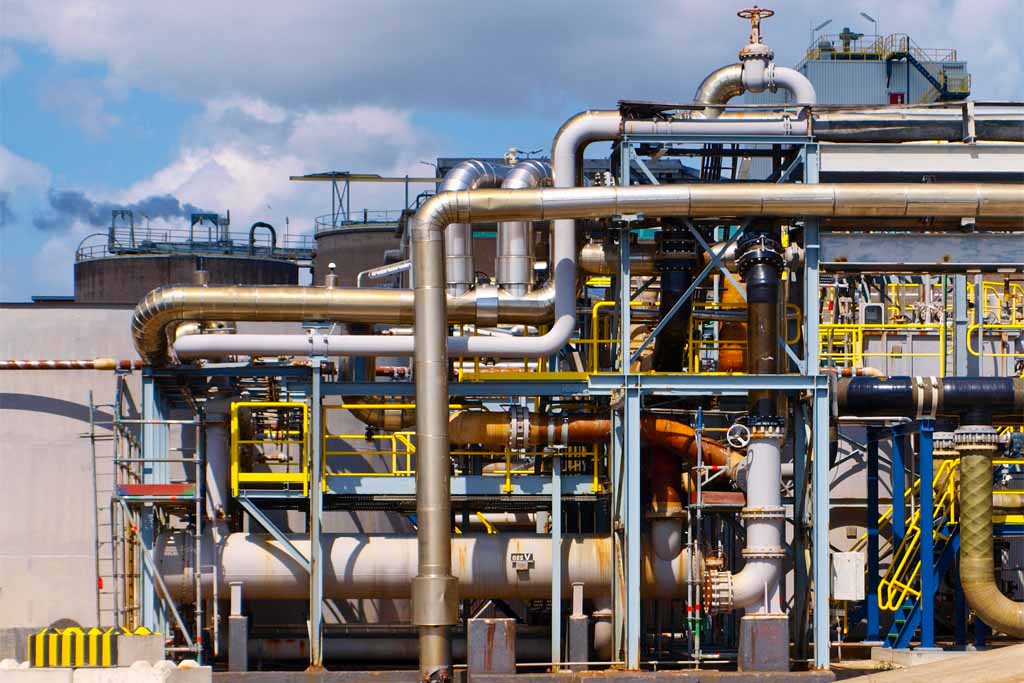Types of pipes for plumbing are used for plumbing work because they are each best suited for other tasks. For example, copper pipes are often used to connect water heaters because they are good at conducting heat. PVC pipes are often used for drains because they resist corrosion.
There’s a lot to learn about piping. It’s not just one type of pipe; it’s several types. We’ll break down the different types and what they’re used for.
What Are Plumbing Pipes?
There are many types of pipes for plumbing. PVC, or polyvinyl chloride, is the most commonly used pipe material. Aside from being the cheapest option, it is also the most convenient.
PVC is durable and can withstand high temperatures, so it is often used for hot water lines. However, it is not recommended for use with sewage because it can break down over time.
Pipes made from chlorinated polyvinyl chloride, or CPVC, are also commonly used in plumbing. It is similar to PVC but has been treated with chlorine to make it more resistant to heat and chemicals. CPVC is often used for both hot and cold water lines.
Metal Pipes
Plumbing can be done with a variety of pipes. types of pipes for plumbing, and there are others that are made of plastic, water quality plumbing. It is important to note that each type has its advantages and disadvantages.
The durability of metal pipes is more excellent than that of plastic pipes. In most cases, they do not need to be replaced for many years. However, they are more expensive than plastic pipes and may require more maintenance.
The cost of plastic pipes is lower than that of metal pipes, and they are easier to install. In contrast, they may need to be replaced more frequently than metal pipes due to their lower durability.
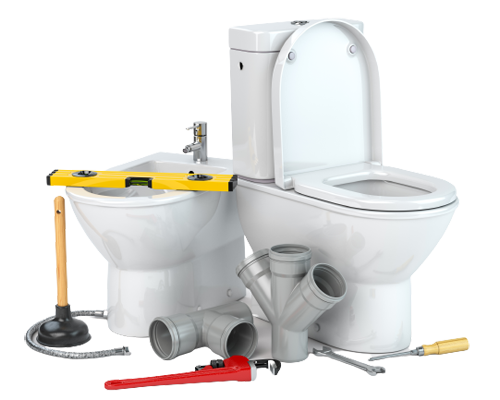
Are Your Drains Slow or Clogged?
Get a Drain Cleaning Today and Say Goodbye to Your Plumbing Woes! Get In Touch With Us And Experience Quality Service At Its Best!
Concrete
Concrete pipes are some of the most durable and long-lasting. Concrete pipes can be used for underground and above-ground applications and are often used in sewer and stormwater systems. Concrete pipes come in various sizes and shapes to suit types of pipes for plumbing needs, and they can be custom-made to meet the specific requirements of a project.
Sewer
The most common type of pipe is PVC, which is used for sewer lines. PVC pipes are durable and can withstand high temperatures. However, they are not suitable for use with hot water. Copper pipes are another option for plumbing, but they are more expensive than PVC pipes. Copper pipes are also susceptible to corrosion and should be replaced every few years.
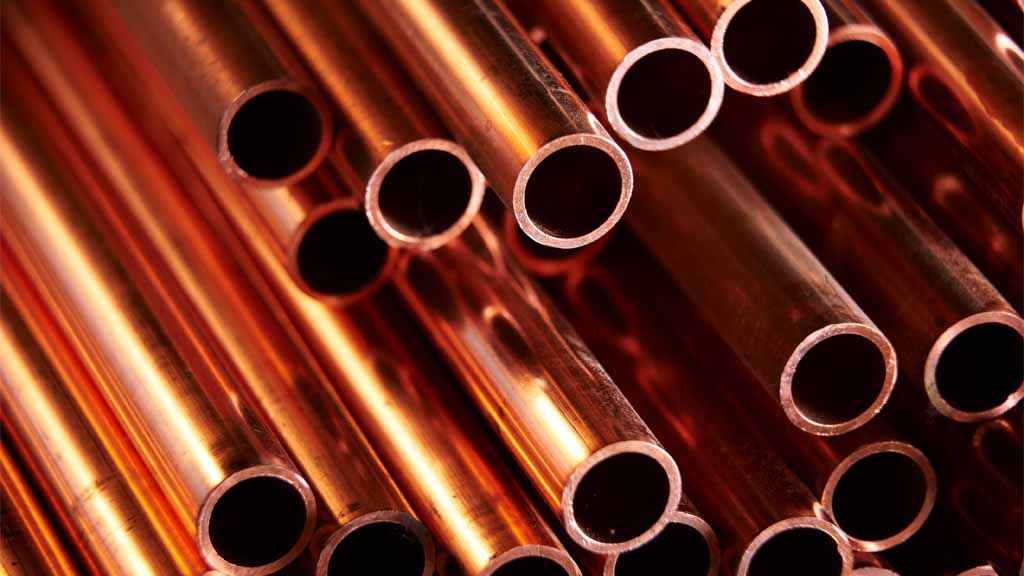
Copper Pipes
- Copper pipes are the most popular choice for water distribution systems in homes. This is because Copper is a good conductor of heat and cold, making it ideal for types of pipes for plumbing
- Copper pipes are used in both hot and cold water systems.
They’re easier to install than other types of line, and they’re also more expensive than other materials like PVC or plastic (but less expensive than cast iron).
The main drawback of copper pipes is that they’re prone to corrosion over time, which can lead to leaks under your sink or bathroom floorboards.The installation of PVC pipes does not require any special tools.
They’re also easy to cut and join together, which makes them a good choice if you’re not an experienced plumber. The best way to prevent corrosion is to use a protective coating on the inside of your pipes.
This will also help avoid any potential leaks from spreading, as they will stay in one place instead of spreading throughout your home. PVC pipes are the most common choice for plumbing jobs today. They’re easy to install, durable, and easily cut and joined. The only drawback is that they aren’t as resistant to corrosion as other types of pipes for plumbing.

Are Your Drains Slow or Clogged?
Get a Drain Cleaning Today and Say Goodbye to Your Plumbing Woes! Get In Touch With Us And Experience Quality Service At Its Best!
Polyvinyl Chloride Pipes (PVC)
The most common type of pipe is PVC, which is made from polyvinyl chloride. PVC pipes are strong and durable and often used in residential and commercial applications. Another type of pipe that is commonly used is PEX, which is made from cross-linked polyethylene.
- PEX pipes are flexible and resistant to freezing and bursting, making them a good choice for use in colder climates.
- Copper pipes are also commonly used for plumbing and can be rigid or flexible. Copper pipes are durable and have a long lifespan but are also more expensive than other types of lines.
- PVC pipes are often used for plumbing because of their durability and ease of use. PVC pipes are typically made from plastic, vinyl, and chlorine.
- They are flexible enough to be bent on demand, but they have a long lifespan.
- They can withstand extreme temperatures ranging from -50 degrees Fahrenheit to 140 degrees Fahrenheit.
The main drawback of using PVC pipes is that they’re not as flexible or resistant to heat as copper or PEX pipes. If you’re trying to install them in areas with high-temperature fluctuations or frequent expansion and contraction (such as near your home’s furnace), PVC may not be the right option for you.
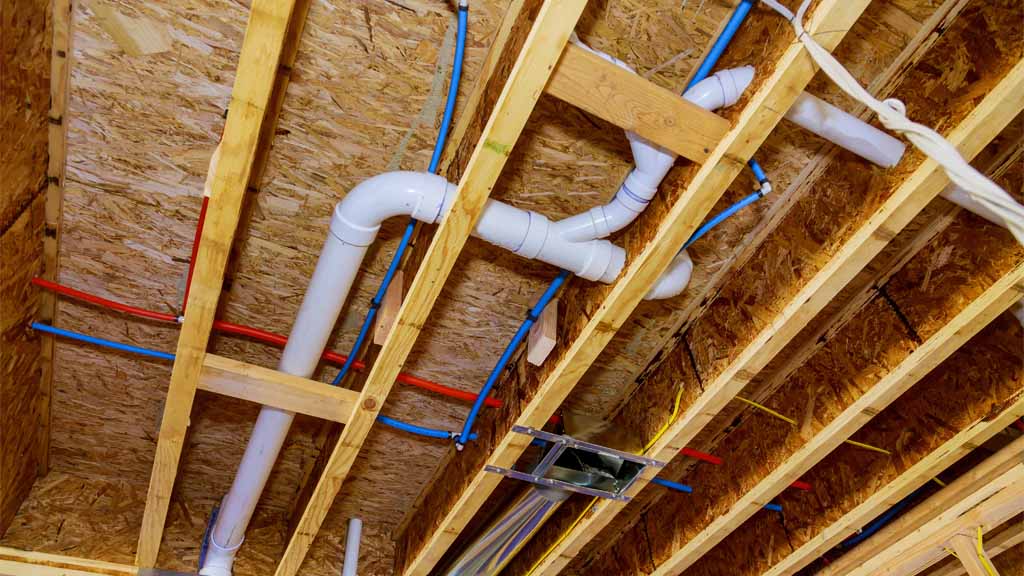
PEX Pipes
Plastic pipes made of polyethylene are called PEX pipes. Water lines, drain lines, and vent lines are all connected to them. The flexibility of PEX makes it easy to install on walls and floors.
The inner tubing of these systems can be installed by pulling it through holes drilled in the framing of a home with a “crimping tool.” PEX is more expensive than copper but less expensive than PVC pipes.
- PEX is less likely than copper to corrode over time, so it’s a good choice if you want your plumbing system to last.
- The same-sized PEX pipe can also deliver more water than copper pipes because it has higher water pressure ratings.
- You can also bend PEX pipes more efficiently than copper pipes, so you can use them where tight turns are needed.
- PEX pipes are slightly more expensive than other types of pipes for plumbing.
The main advantage of PEX is that it’s easier to install than copper pipes. You don’t need any special tools or skills for this job, so you can save money by doing it yourself. PEX also has a smaller diameter than other piping materials, so it takes less space in your walls or floors.
Galvanized Steel Pipes
Galvanized steel pipes are used for cold water lines. They are made of steel and zinc, which makes them less corrosive than copper and PVC. Because galvanized steel pipes are less intense than PVC or copper, they tend to be limited in size.
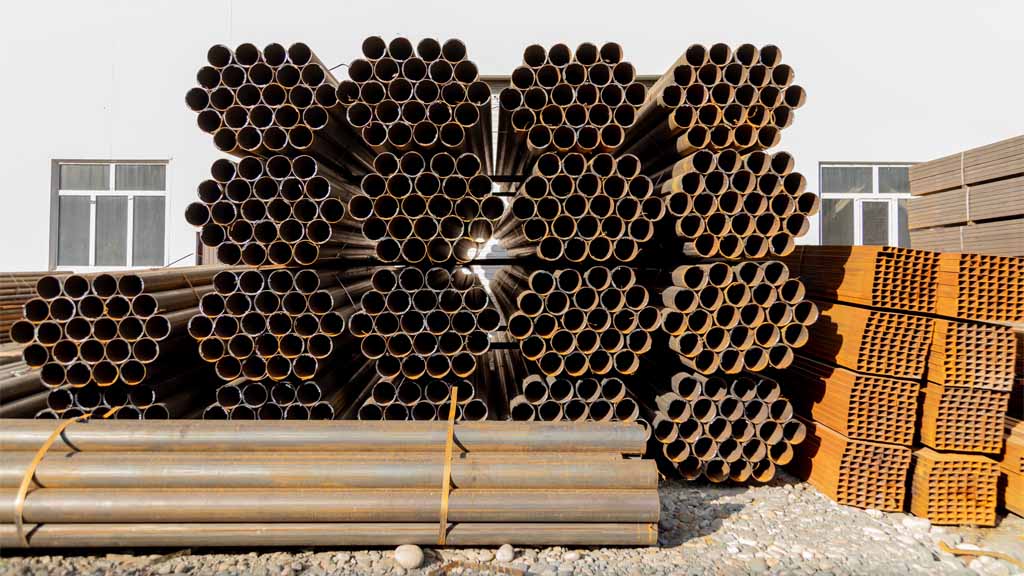
Also, because galvanization steel is more prone to corrosion than other piping materials, you may want to consider using plastic pipes instead if you plan on having your home’s plumbing inspected.
Copper pipes are also prone to leaks around the joints where they’re joined together. This can happen because copper pipes expand and contract with temperature changes, which stresses the joints in your hot water system.
These issues can be especially problematic if you live in a cold climate or significantly fluctuate between summer and winter temperatures. PVC is also not as safe as copper or PEX pipes, so it may not be the best choice if you have small children or pets in your home.
The chemicals used to make PVC are known carcinogens, and they can leach into your drinking water if the pipes aren’t correctly installed. If you’re worried about this happening, consider using copper or PEX instead, as it has a variety of applications, including use in radiant heating systems and hot water heaters.

Are Your Drains Slow or Clogged?
Get a Drain Cleaning Today and Say Goodbye to Your Plumbing Woes! Get In Touch With Us And Experience Quality Service At Its Best!
It’s also used for plumbing systems transporting hot and cold water through the same pipe. The inner tubing is made from extruded polyethylene resin with metal fittings attached to each, and when you are choosing galvanized steel pipes, it is essential to check the coating on them.
The coating will determine how long they last and how well they resist corrosion. You should also check their thickness and diameter when comparing different brands of galvanized steel pipes.
There Are Different Types Of Plumbing Pipes For Various Applications.
There are different types of plumbing pipes for other applications. The most common type of home pipe is PVC or polyvinyl chloride. PVC is strong, durable, and easy to install. It is also resistant to most chemicals.
Another type of pipe often used in plumbing is called PEX, or cross-linked polyethylene. PEX is flexible, making it easier to install than rigid pipes like PVC. PEX is also resistant to freezing and can withstand high temperatures.
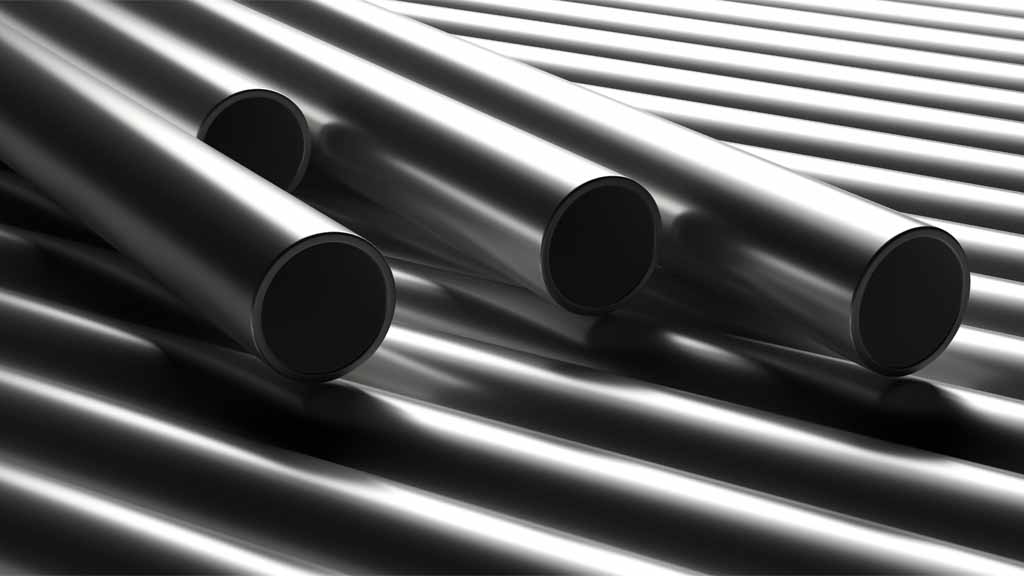
Copper pipes are another option for plumbing. Copper is a good conductor of heat and electricity, so it can be used for radiant heating systems. Copper pipes are also very durable and have a long lifespan.
There are many different types of pipes used in plumbing systems. The style selected depends on the application, including the flow rate, operating temperature, pressure, and corrosive nature of the fluid that will be carried through it. For example:
- Copper pipes are used in plumbing systems to supply water and drain waste. There are different copper pipes, each with its benefits and drawbacks.
- Type M copper pipe is the thinnest and is typically used for indoor plumbing applications.
- PVC pipes are used for drain, waste, and vent applications because they resist corrosion while remaining flexible enough to withstand high pressures at low temperatures. They may also be used as an alternative to galvanized steel (galvanized steel is not typically considered a good choice for water supply lines).
- Polyethylene (PE) or PEX tubing can be used for hot and cold water distribution systems due to its flexibility and durability when exposed to moderate temperatures up to 140 degrees Fahrenheit (60 Celsius).
- It can also withstand high pressures without bursting like PVC or CPVC piping would if exposed to excessive stress during operation—making it ideal for use in hot water heating systems where temperatures are regular.
PEX tubing is more expensive than PVC, but the price difference isn’t as significant as it used to be. It’s also easier to install than other piping types because it requires less time and labor.
Conclusion
Plumbing is one of the most essential systems in your home, and it is vital to know the different types of pipes used for this system. The three most common types of lines used in plumbing are PVC, copper, and PEX.
PVC or polyvinyl chloride pipe is the most common type used in plumbing. It is strong, durable, and easy to install. PVC pipe is available in various sizes and can be used for indoor and outdoor applications.
Copper pipe is another common type of pipe used in plumbing. Copper is a durable material resistant to corrosion and can be used for hot and cold water applications. Copper pipe is available in various sizes and can be cut to fit your needs.
We hope this helped you to understand the different types of plumbing pipes. The pipe is a significant part of any plumbing project, and it’s good to know about it before starting your next project.

